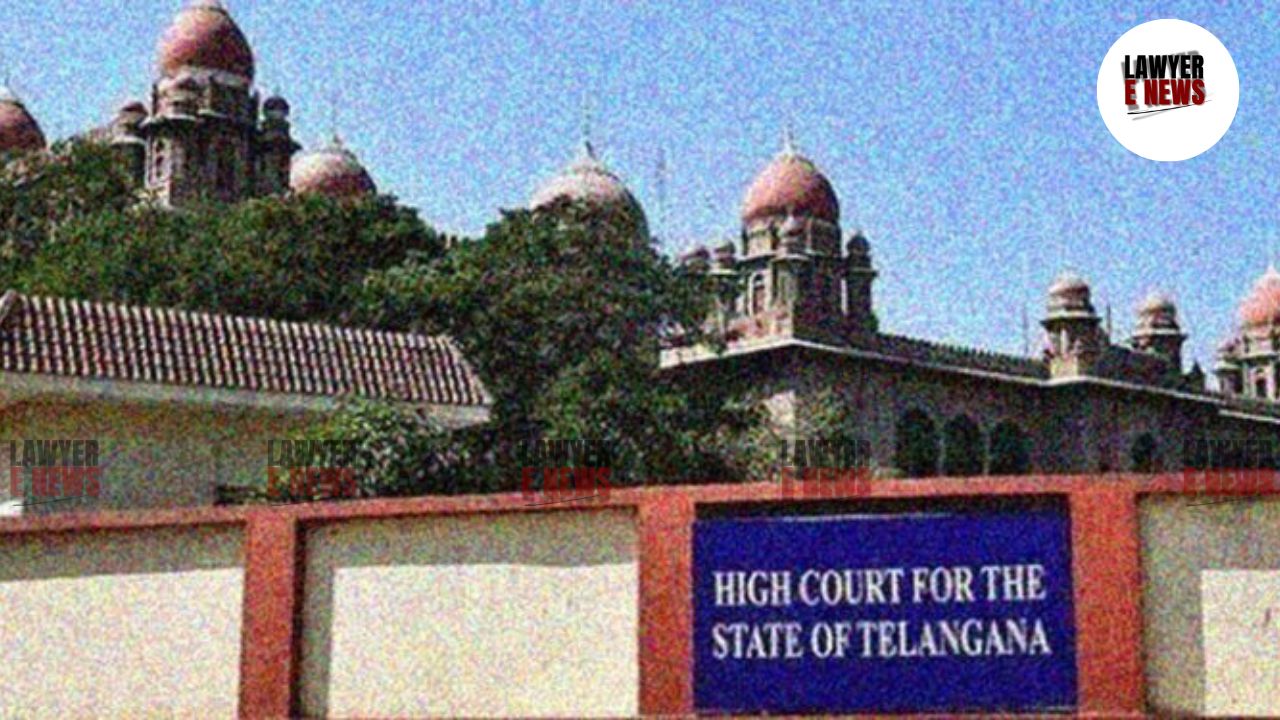-
by Admin
18 February 2026 3:03 AM



Telangana High Court, in Smt. B. Lalitha Devi & Others v. Lakshman & Others, ruled that a judgment under Order XII Rule 6 of the Civil Procedure Code (CPC) can only be passed if the admissions made by a party are clear, unambiguous, and unconditional. The court dismissed the civil revision petition, affirming that the plaintiffs, B. Lalitha Devi and others, had not met the burden of proving their possession over the disputed property, as the admissions made by the defendants were conditional.
The plaintiffs, heirs of Mr. B. Krishna Murthi, filed O.S. No. 138 of 2016 seeking a permanent injunction to restrain the defendants from interfering with their possession of a property comprising mulgies and other structures in Narayankhed Village. The property had been gifted to B. Krishna Murthi by the original owner, P. Venkatesh Rao, as a gesture of gratitude for his services. After Murthi's death in 2016, the plaintiffs continued to manage the property.
However, the defendants challenged the plaintiffs' possession and claimed ownership of the property through sale deeds executed by the same original owner, Venkatesh Rao, in favor of defendant no. 1, and later transferred to defendant no. 2.
The plaintiffs, asserting that the defendants had admitted their possession in the counterclaim, filed an application under Order XII Rule 6, seeking a judgment based on these admissions. However, the trial court rejected this plea, holding that the defendants’ admissions were not unequivocal. The defendants had acknowledged the plaintiffs’ constructions on the property but claimed that the structures were illegal and contested the plaintiffs' possession.
The High Court noted that under Order XII Rule 6, a court may pass judgment based on admissions made in pleadings, but such admissions must be unequivocal and unqualified. The court emphasized that in this case, while the defendants admitted the existence of constructions, they did not admit the plaintiffs' legal possession, alleging instead that the plaintiffs’ claim was based on an illegal gift deed and unauthorized construction.
Citing relevant case law, including Karam Kapahi v. Lal Chand Public Charitable Trust and Uttam Singh Duggal & Co. Ltd. v. United Bank of India, the court reiterated that the power under Order XII Rule 6 is discretionary, not mandatory, and can only be invoked when admissions are clear. Since the admissions in this case were conditional and disputed, the court found no grounds to interfere with the trial court's order.
The petition was dismissed, and the plaintiffs were required to continue proving their possession and title over the disputed property in the ongoing trial.
Date of Decision: 17th October 2024
Smt. B. Lalitha Devi & Others v. Lakshman & Others.
